Kassi Existentialism

The word Kassi is firmly embedded in our college lingo. If you’ve been a student at IIIT for any amount of time, there is a possibility that you have been called or will be called Kassi at some point. The words, referring to the Ping! article about college lingo (quoting only the best), are roughly defined as follows:
Bond [bɑnd]
A person who is good at what they do. Whether it be studying, coding, singing, dancing, writing this article – a bond is just a great person throughout.
Kassi [kɐs’i]
A bond, but the kind that actually cares about his life and works on his CGPA/single-minded pursuits for success. These are the very people Rancho spoke about when he suggested running towards excellence and not success. A kassi is basically a bond with a negative connotation.
I was wondering why this negative connotation was mentioned though, because realistically speaking, Silencer was quite successful in his own right.
Etymology and usage
Trying to connect the etymology to the meaning, we can intuit that kassi might be related to the word root ‘kasna’ or tighten in hindi so it possibly refers to someone who’s always relatively uptight or tense in a sense.
Kassies are uptight about conforming to the societal perception of success. It’s no wonder that when asked about what people thought about the word, some said it is used to refer to people who are “still stuck in JEE mode”. Though the socio-psychological implications of why being tense and conforming to societal perception of success are synonymous with being ‘stuck in JEE mode’ are interesting, the relevant point here is that being Kassi is about doing your best to uphold the concept of success prevalent in society (and hence indoctrinated into you) be it through getting high grades, or doing competitive programming to pass technical interviews for jobs.
This is where it differs from just merely being good at things i.e. a Bond; There is a certain multiplicity inherent in being a Kassi; Instead of maximizing just your competence at a certain skill, there is a drive to also maximize your societal status. These drives are mostly complementary, however they can also end up in contradiction sometimes. Analyzing when this happens can give us interesting insights.
Grademaxxing (?)
In common parlance, the Kassi label (as opposed to Bond or a less superlative form of Saanp) can be associated with the following (non-exhaustive) list of behaviours:-
1. Being extremely concerned with their grades, to the point where the grades may be given more importance than learning or the discussions about grades might become toxic.
2. Being weirdly chatty with profs, TAs, or seniors and inquiring more about exam patterns and scoring instead of the course material itself.
3. Focusing solely on college academics at the expense of personal projects and interests or college activities.
4. Wanting to know everything about the opportunities and projects others are doing to an almost intrusive level whereas not being open to the same degree about things they are doing.
Is there anything wrong with these though? After all, if it is given that we come to college to “do well” and get a good job, and that there are only a limited number of “good jobs” (for which our CGPA might end up mattering), it seems reasonable to engage in such behaviours.
Let’s say for example, that the night before the exam you could know what questions would be on the test, or that you could get extremely well-acquainted (wink wink) with a TA, so that they could go lite on a viva or mark your project work a bit more leniently thereby lessening the pressure in the middle of the storm which is an average IIIT semester, or if you could connect with people in industry who would give you a good job without interviewing you as rigorously as other candidates. We would be lying to ourselves if we said that these don’t seem lucrative.
This, in my opinion is an example of Goodhart’s Law i.e. The measures of competence and dedication such as having good grades and jobs have become targets, and hence they stop being good measures solely by themselves. The Kassi model works because, realistically speaking, there’s no way to differentiate between two people who have achieved some measure, through that same measure. When there’s a way to quantify anything, you can keep going through the same hoops as who you want to be, the only bottle neck being your desire to do the same. When money and status in society are such strong incentives, the drive of a ‘bond’ to do something is no more authentic than the ambition of a ‘kassi’ to achieve that same thing.
Insecurity
But wait a minute, almost all of us have engaged in some of the behaviours mentioned in the last paragraph at some point in time. It seems perhaps, that we are almost biologically wired to try and hack the status game as much as possible; For example, we want to minimize the effort we put in and maximize our grades, or minimize upskilling and have the best job, the most pay. Why is it that we only label the people who can outwardly be seen as doing this as Kassies in a derogatory sense?
One reason this may be is because of a certain ruthless and desperate edge which becomes visible when someone engages in these behaviours. We want to play the status game, without people knowing that we’re playing it, otherwise we are just labeled as desperate.
Having reached this institute, it is extremely probable that academic and professional validation is, or has been a part of our self images for a long time. When it feels threatened we are insecure. The closer the belief is to our self image, the more desperate we get to continue to believe in it.
In society, we’re socialized to hide these ruthless, competitive and insecure parts of ourselves, which keep engaging in status and power games underneath the surfaces of our psyche. We want to pretend that we are living in a caring, wholesome and creative environment, even though it does not explain the process of violent societal “progress” which is prevalent, be it in our destruction of the environment, rising wealth inequality or many other similar metrics.
In observing Kassies, our own beliefs become apparent and to deal with this cognitive dissonance we judge and exclude the other person thereby telling ourselves that we don’t have these same emotions. The root of the insecurity comes from looking at life as a zero-sum game.
College (and Life) is not a Zero-Sum Game
If we hold close the belief that we have to be the richest or the most successful person in the societal sense of the word, and that this can only happen by putting others down, two things happen:
1. It becomes harder for us to be those things, because the cognitive load of actually excelling at what we are doing adds to the fear of not succeeding, or of getting overtaken by the competition which is an inefficient use of our mental resources.
2. We become cruel and can start thinking that the only way up is on a pile of the competitor’s bodies. We do not seek to learn from the diverse and creative perspectives different people have, instead we get insecure about the competitive advantage they may have from innovation.
Viewing life as a zero sum game is the paradigm though, and is quite deeply entrenched into our conditioning, so it is hard to clearly look through it. Even if we do see the fact intellectually, it is still a long journey to observe our conditioned reactions as they come up.
Bonds are people who are free from the insecurity caused by these status games in a certain sphere of life. A high degree of competence, an unquenchable thirst to improve or an extreme love for what you’re doing can have these effects on you, but so can deducing from a rational perspective that helping others is the best strategy for you in the long run. This is the perspective of egoistic altruism I would like to present for your consideration.
Abundance and Authenticity
Let’s be naive romantics for a moment.
In the journey you took with me over the past 1000 words, we looked through the contrived games we play beneath each of our social interactions, and how much we have been indoctrinated by society, “fallen into sin”. Let us imagine a world where all of us know and do exactly what we want. The spontaneous, authentic and creative unfolding of our inherent nature makes us seek the truth in the chosen discipline, and society organizes itself around us to accommodate for this. Where all of us are ‘bonds’ in the true sense of the word, and we are all beyond competition. The ocean is blue as far as we can see.
You can come back now, as you slowly realise how incomprehensibly, inacheivably far that utopia is. The romanticized notion of true authentic selves (akin to souls) is a very comforting one, comparable to one of our other all time-favourite concepts as humans….
Be Yourself (?)
“Authenticity is dead. Authenticity remains dead. And we have killed it. How shall we comfort ourselves, the murderers of all murderers? What was holiest and purest of all that the world has yet owned has bled to death under our knives: who will wipe this blood off us? What water is there for us to clean ourselves? What festivals of atonement, what sacred games shall we have to invent? Is not the greatness of this deed too great for us? Must we ourselves not become Authentic simply to appear worthy of it?”
This passage, written solely by myself (and definetely not by running Find and Replace) importantly can be seen to refer to the loss of authenticity as a mode of creation of identity in contemporary times. It is extremely difficult for authenticity to serve that role because there is a paradox inherent in authenticty; If I told you to be yourself, and you listened to me, would that be an authentic expression of yourself? Would you be being yourself, or would you being what I want you to be? What does it even mean to become authentic? Are we not all just second hand humans programmed by society?
Profilicity
Imagine any Bond in college. Maybe they have insane coding, or music, or dancing skills. Now, imagine them feeling insecure about their body image, their fashion sense, their communication skills, their char(izz)isma or their mental health and coping mechanisms, atleast some of which are probably the case.If they started working out purely for aesthetics, or buying expensive clothes to upgrade their wardrobe, or taking a course in public speaking because they realised the social games that we play, it wouldn’t make sense to dogpile on them for being a kassi. Are academics any different?
Social media and the growing realisation of performative acts as builders of identity (or rather our collective voluntary ignorance to the fact that this is how our selfhood is established, thereby providing legitimacy to these “profiles”) have finally rendered the notion of authenticity unbelievable for many of us (atleast in the way the notion was previously intuited). Without getting into the nitty gritty of the philosophy, I present another perspective we can explore given this realisation.
Kassi Existentialism
We face the fact today that perhaps we never have had, or never got the time to explore and develop our “authentic” interests in an organic process due to various factors and societal conditioning.
Only in our performances, our genuine pretences of devotion to a certain sphere of life does society recognize that facet as a part of our identity through followers or grades or money or some other metric, and we come to know ourselves.
There is a sadness involved in letting authenticity go, but there is also a bittersweet creativity that stands in opposition to it. When authenticity is dead, anything is permitted.
Kassi hard, and in the process you may be delivered from the clutches of inauthenticity by a genuine unquenchable curiosity you develop for that field. Call it ‘Kassi Existentialism’.
Or Maybe Not (?)
As a final thought (to confuse you even further), perhaps academics actually are different. Being in IIIT, we are almost certainly interested in something tangentially related to computers. We are lucky to be a part of a few people in society who can tinker around and actually explore their curiosity in these areas and be paid well for it. As one of our professors said “When you give smart, creative people enough resources and relieve them of financial and other pressures, environments conducive to genius are created”.
Alternatively perhaps we should indulge the hopeless romantics among us. Let’s say your genuine interest was not here. Are you going to continue on this path for the next 20 years for the romanticised notion of financial security, doing things you hate to finally be able to live your life or do you have the resolve to go against the stream of society to explore what comes naturally to you, even though you might be scared to not know it now and might never know it truly?
Are you going to be a realist, or are you going to dream?
The clock is ticking, Who are you going to be(come)?
Editor: Vineeth Bhat

 Cleaning up the Mess?
Cleaning up the Mess?  The Mess-y Situation
The Mess-y Situation 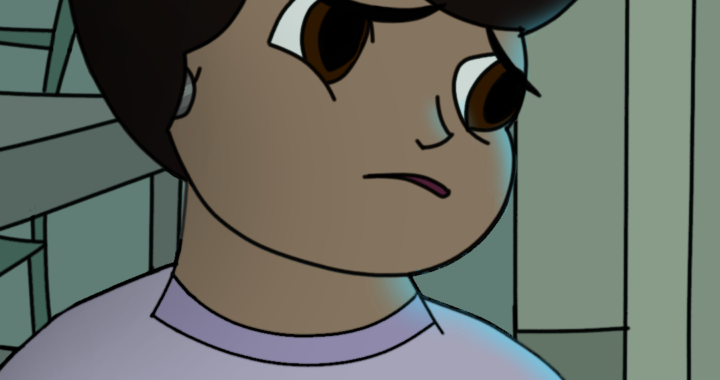 Qu’ils mangent de la grenouille! (Let Them Eat Frogs!)
Qu’ils mangent de la grenouille! (Let Them Eat Frogs!) 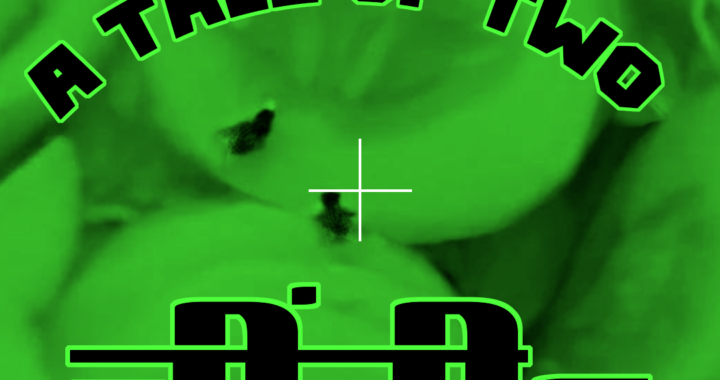 Tale of Two Cheenties
Tale of Two Cheenties 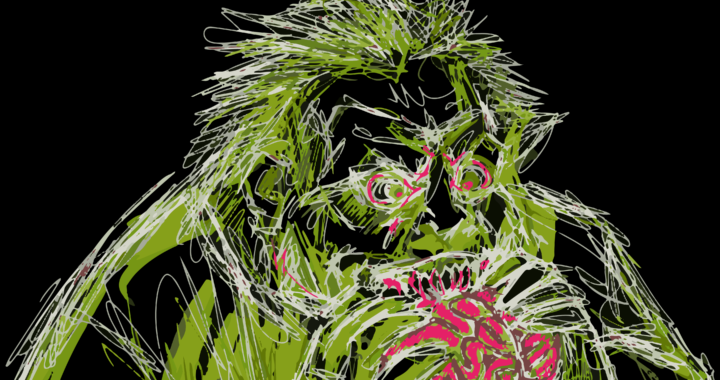 Peace of mind.
Peace of mind.  Boats and Valorant
Boats and Valorant 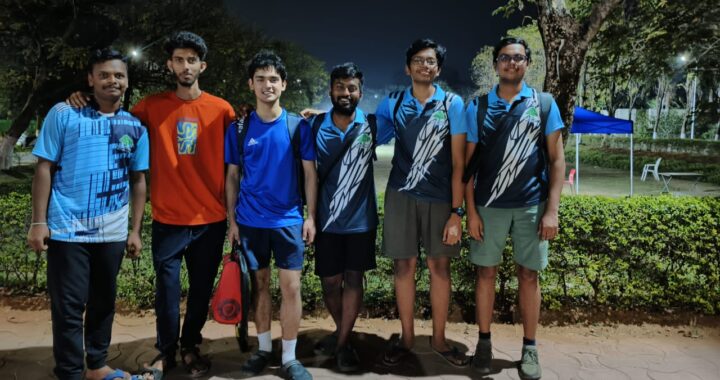 A perspective on sports in IIIT
A perspective on sports in IIIT 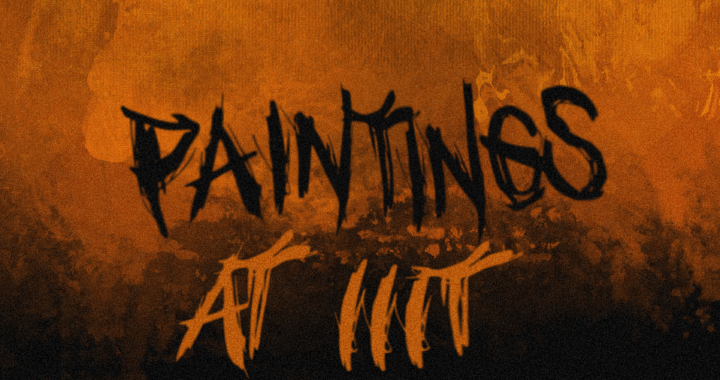 Paintings of IIIT
Paintings of IIIT 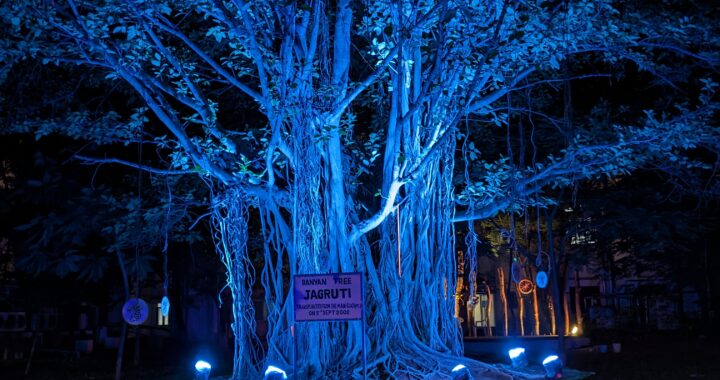 The Tale of Jagruti
The Tale of Jagruti